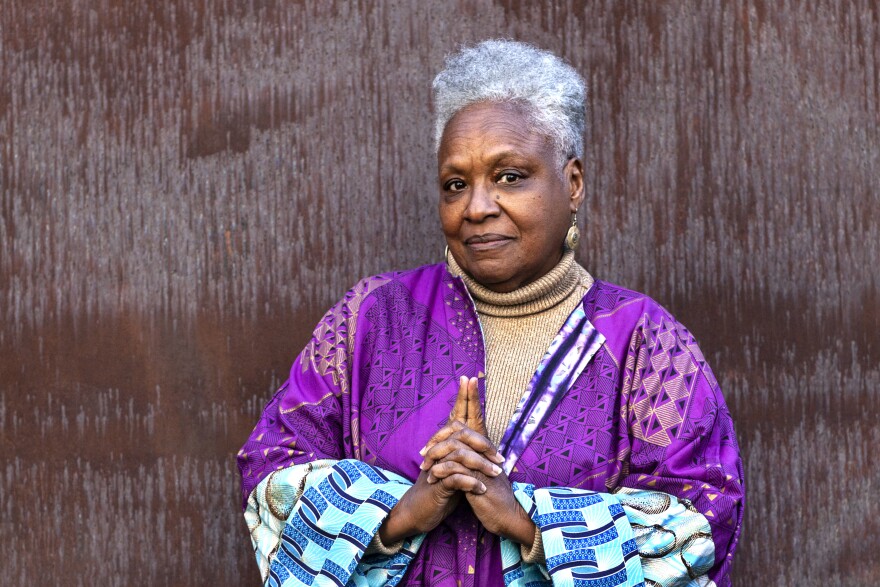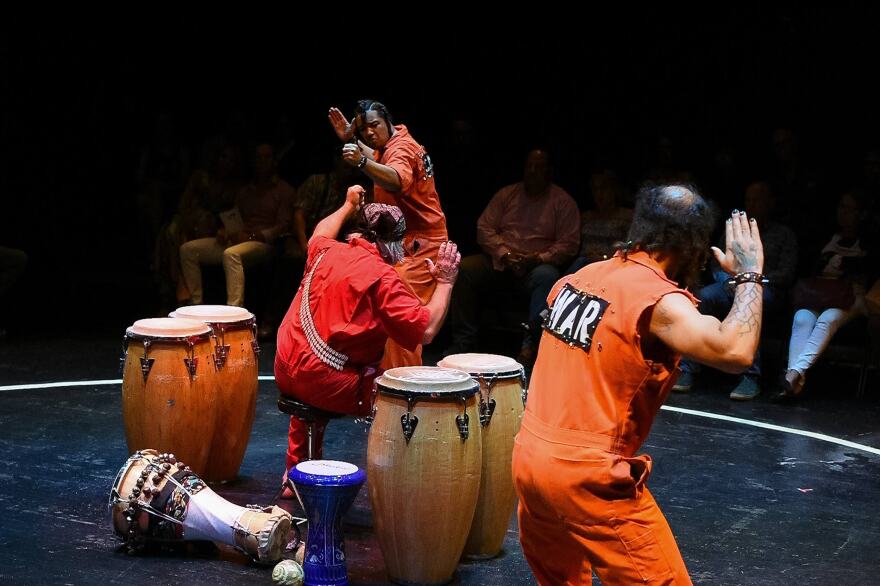While on tour in Texas and Latin America last year, discovering the creative ways that other performing arts groups sustain themselves, Cara Mia Theatre’s David Lozano realized his company’s annual gathering of Latino artists could be larger and more useful.
As a result, the fifth edition of Cara Mia’s has not only expanded to include performances by more than a dozen theater, music, dance and comedy troupes — up from just three in 2022 and 2023 — it also includes for the first time a on sustaining the arts through community development. The festival opens Thursday and runs through Oct. 13.
“The conversation in every city,” says Lozano, Cara Mia’s executive artistic director, “was how are we going to sustain our work, our operations, our companies.”

At a festival of 86 theater groups in Bogotá, Colombia, Lozano met members of a small farm-town troupe who were thriving by balancing their experimental plays with populist music, dance and cultural fare.
“They develop these plays over a long period of time, and the work is exquisitely poetic,” Lozano says. “But when you see their programming, it’s very traditional and popular. They pack the house.”
He also learned the role of food. At the Bogotá festival and another in the Colombian city of Chía, the theaters ran moneymaking kitchens on site that fed both performers and members of the public. In Chía, construction workers from a nearby project would show up to eat lunch during the festival.
In addition to generating revenue, a large, multi-faceted festival fosters conversations and experiences that go beyond just seeing and performing in shows, Lozano says. To that end, he hopes the combination of a festival and a symposium will create the kind of synergy he saw when touring Cara Mia productions to San Antonio, Mexico City and Colombia in 2023.
“It’s like Grand Central Station. People from all over the world are crossing paths. We were seeing all of these different ways of working, how they use space, how they use food to bring people together. You’re having a meal, you’re talking. You’re not sitting in your hotel and then it’s time for the show.”


Being held Oct. 3-5, the Latinidades Arts Symposium opens and closes at the Latino Cultural Center, where Cara Mia is a resident company. It starts with keynote addresses by and about how art nourishes communities and social movements. The speakers will offer strategies for overcoming roadblocks and thriving.
The second day, at The Dallas Morning News building downtown, begins with Olga Garay-English, a director of the , discussing her organization’s . There will be breakout sessions on working with local government agencies, social media storytelling, collaborating, voting, fundraising and audience building.
On the last day, participants will review what they’ve learned.

“When you look at the reality of supporting not just your arts organization, but your arts practice, your arts career, there’s a moment of sobriety when you realize you’re not going to build your livelihood around selling tickets,” Lozano says. “So the question then is, ‘How do you do it?’ ”
In an effort to closely tie the symposium to the festival, there will be late-night critiques of the evening performances and additional performances incorporated into the daytime sessions.
Opening the festival is Ghostly Labor by San Francisco’s La Mezcla, a Chicana group of actors, musicians and dancers who took the 2022 edition of Latinidades by storm with , which traced female experiences during the 1940s zoot suit era. Its latest piece explores the history of labor in communities along the U.S.-Mexican border.
is one of 13 shows in the festival, almost half of them free. Six have dance as a primary element. Many are in Spanish, some with English subtitles. With music and movement central to so many of the works, Lozano says, verbal language becomes less important.

The other paid performances, which run two or three times each, include Teatro Petra’s comic play about women’s rights and the absurdity of societal norms, (Bogotá); ASYC/El Teatro de Movimiento’s dance piece about reconstructing growing up through memory, (Mexico City); ’s mashup of standup, parodies and short plays about Puerto Rican culture, Las Jevas (San Juan); Escultores del Aire’s dance-theater about the heartache and stages of grief after a breakup, (Barcelona); the ’ dramatic work about the aftermath of war set to punk music, (Miami and San Juan); and , a dance and music work-in-progress about the title goddess by Cara Mia, fellow Dallas groups the Flame Foundation and New Orleans Original BuckShop, and Mulato Teatro (Ticumán, Mexico).
In addition, there will be free performances by ASYC (); ; a multi-artist poetry reading titled ; by La Asociación Cultural Colombiana del Norte de Texas; the Dallas-based Cuban salsa band ; and , an Afro-Puerto Rican music, dance and cultural group.
Most of these shows will take place on the Latino Cultural Center’s outdoor plaza following paid performances in the main auditorium and black box theater.

“The space itself shows that we can do this,” Lozano says. “This is actually part of our strategic plan to contribute to [Latino Cultural Center]. Because we are residents of the building, we have the facilities to do it now. And as we developed more resources and knowledge from touring and performing at festivals, we know how to execute it. Three, four, five years ago, we didn’t have the ability to produce efficiently at such a scale.”
At the same time, he emphasizes that it has taken a village to build Latinidades, a lesson he hopes festival attendees leave with. As an example, he cites Meeks and Margie Reese, the former director of the city of Dallas’ Office of Cultural Affairs (now the ), as key contributors to shaping the symposium.
“I’m not leading the symposium; I’m not leading anything,” Lozano says. “I may sit on a panel about collaborations, but I’m just one voice of many.
Details
Sept. 26-Oct. 13 at the Latino Cultural Center, 2600 Live Oak St., and The Dallas Morning News, 1954 Commerce St. Individual paid performances, $16-$25. Festival passes, $80-$125. Symposium, $275. Scholarships available. .
Arts Access is an arts journalism collaboration powered by The Dallas Morning News and �Ļ�ӰԺ.
This community-funded journalism initiative is funded by the Better Together Fund, Carol & Don Glendenning, City of Dallas OAC, The University of Texas at Dallas, Communities Foundation of Texas, The Dallas Foundation, Eugene McDermott Foundation, James & Gayle Halperin Foundation, Jennifer & Peter Altabef and The Meadows Foundation. The News and �Ļ�ӰԺ retain full editorial control of Arts Access’ journalism.






